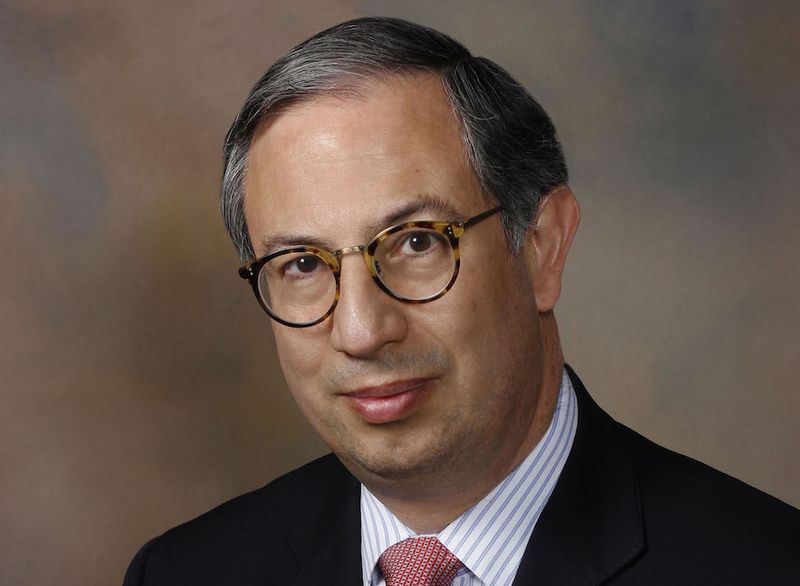Across the state, adherence varies widely. The order bluntly prohibits gatherings of 50 or more people who are not distanced at least 6 feet apart. There are exceptions for critical or “transitory” gatherings, for example people working in a hospital or passing each other in an airport.

Emory School of Medicine Executive Associate Dean Dr. Carlos Del Rio has condemned a pandemic “leadership vacuum” and called for the CDC to fill in the gap.
Credit: contributed
Credit: contributed
But over and over the state has seen large, close gatherings, notably among GOP planned political events and liberals demonstrating or spontaneously celebrating.
A spokesman for Kemp, Cody Hall, suggested that was an issue for law enforcement.
“I would point you to the fact that all state and local law enforcement have been able to enforce the orders since early May,” Hall said in a written response.
Asked whether law enforcement would be expected to break up a gathering at which the governor himself was speaking, Hall did not immediately respond.
Instead of a mask mandate, under Kemp’s order, people in Georgia are “strongly encouraged” to wear masks when in public. Kemp’s current order expires Sunday but on Friday he renewed it, extending the provisions through November 30.
Kemp has made it a point to wear masks in public and in July flew around in a statewide “wear a mask” messaging tour. Where Trump officials have disdained masks, sometimes even refusing to answer questions when a reporter requests they wear a mask, Kemp holds mask-only press conferences and unmasks from a distance. But he has enthusiastically spoken at unmasked gatherings as he helped campaign for candidates including Kelly Loeffler and Trump.

Governor Brian Kemp speaks during the “Evangelicals for Trump: Praise, Prayer, and Patriotism” event at Reid Barn in Cumming, Georgia on Tuesday, September 15, 2020. (Hyosub Shin/Atlanta Journal-Constitution/TNS)
Credit: HYOSUB SHIN
Credit: HYOSUB SHIN
Messaging is critical, Del Rio said, especially as new science continues to hone in on the most potent weapons of the coronavirus. Just this week, a preliminary study for the journal Nature narrowed down what it found are likely the most dangerous gatherings. It projected that rather than universal bans, targeted prohibitions on full-service and limited-service restaurants, gyms, hotels, cafes and religious organizations could be most impactful in protecting lives.
Del Rio suggested that the CDC have its experts speaking to the public and the press to explain its recommendations, while community leaders, from industry to governors, beat the drum.
“As we enter the holidays, as we enter these very challenging times,” Del Rio said, “if we don’t do that, we are going to have more pain and more suffering.”
Even before the holidays, the nation is seeing an unprecedented increase in infections, driven partly by areas of the country that were spared in earlier surges.
Georgia is not yet at levels it saw earlier in the year, when its hot spots were among the worst on the globe. But infections are increasing, according to the state Department of Public Health, especially in northern Georgia and metro Atlanta.
GEORGIA PUBLIC HEALTH EMERGENCY ORDER
Gov. Brian Kemp issued this executive order in March and has kept it renewed ever since. He renewed it again Friday, according to his aides.
“No business, establishment, corporation, non-profit corporation, organization or county or municipal government shall allow Gatherings of persons.”
The order’s exceptions include critical workers such as health care workers as well as families that live together. It exempts accidental gatherings, for example people walking by each other in an airport:
“…’Gathering’ shall mean more than fifty (50) persons physically present at a Single Location if, to be present, persons are required to stand or be seated within six (6) feet of any other person. Therefore, groups of more than fifty (50) people are permitted if their grouping is transitory or incidental, or if their grouping is the result of being spread across more than one Single Location.”